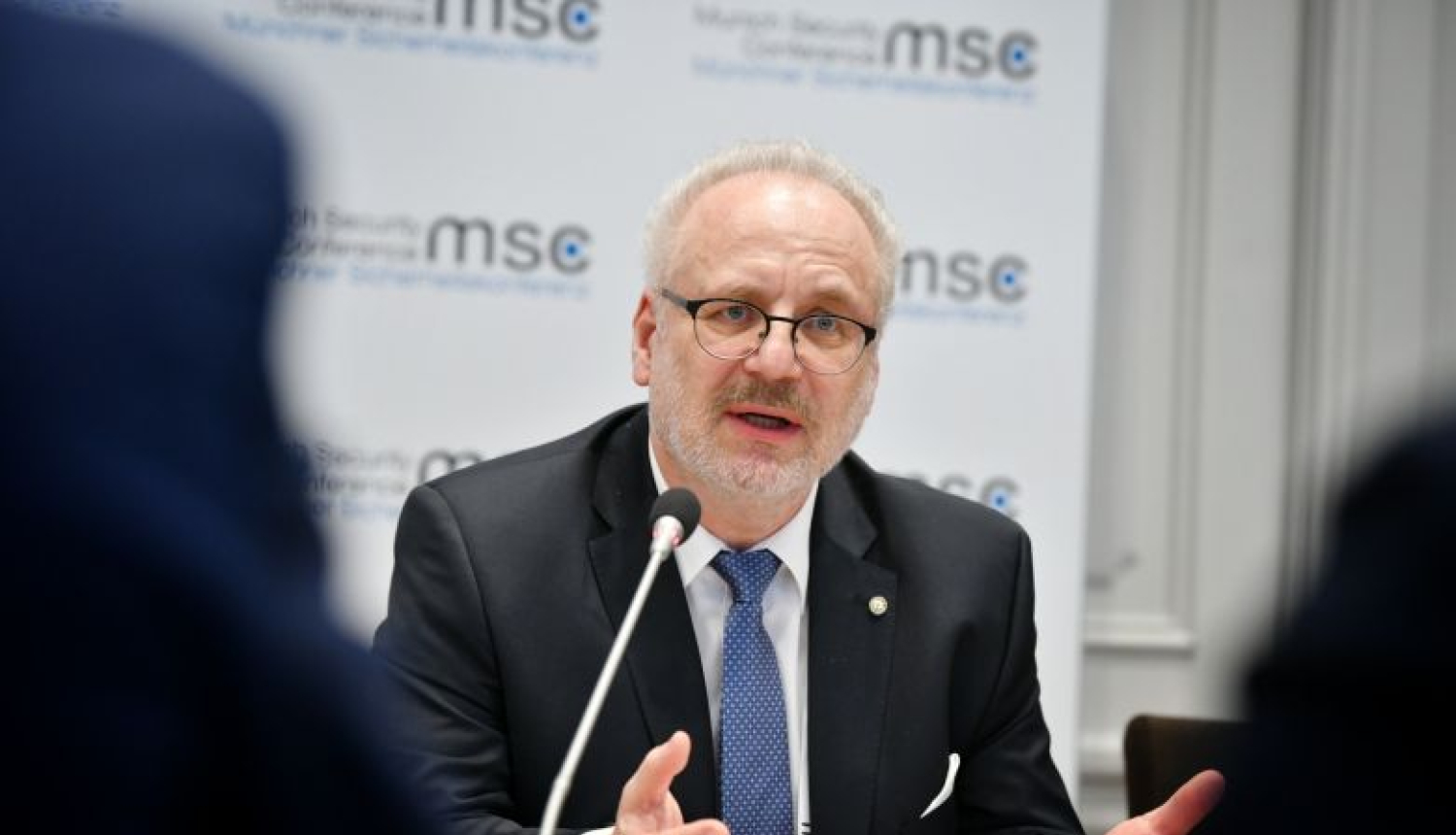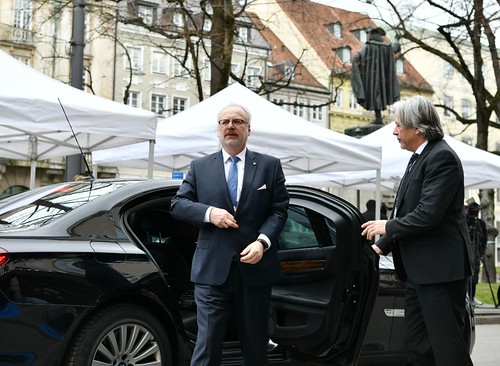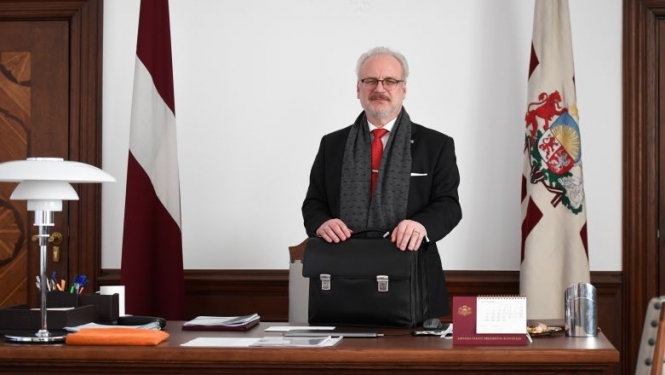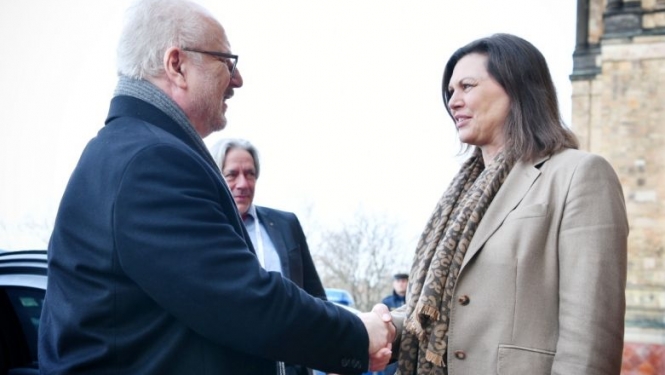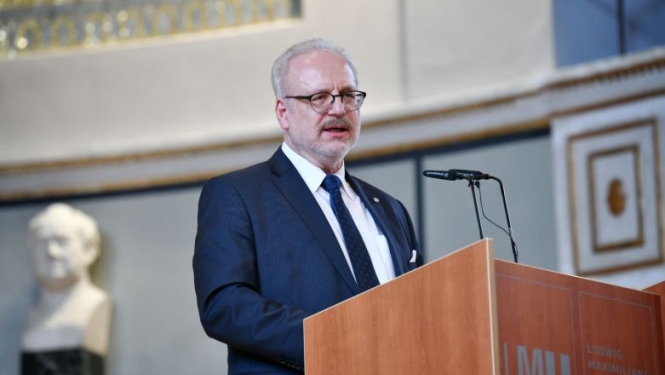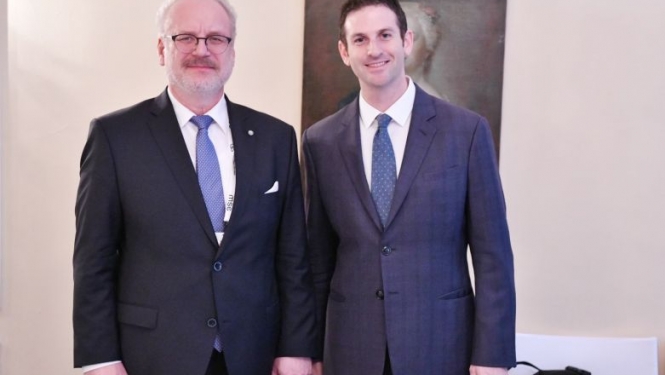Ladies and gentlemen,
Since the Baltic States regained independence, our key foreign policy goal was membership of the NATO Alliance. After half a century of Soviet occupation, we felt that this was the only way to guarantee our security.
When this aim was achieved in 2004 we were convinced that our self-defence capability – backed up by NATO membership with its Article 5 commitment – would be enough. Events have proved otherwise. The world has become less secure and less stable during the last 16 years.
Russia has shown that it is prepared to use force to secure its political goals. The first indications were the cyber-attacks on Estonia and the organised rioting in Tallinn in 2007. In 2008 Russia occupied parts of Georgia after a brief war. Then, more recently, the occupation and annexation of Crimea and the conflict in Donbas awoke old fears.
So, our Alliance acted swiftly and with determination to bolster the self-defence capabilities of Poland, Lithuania, Latvia and Estonia with the enhanced Forward Presence, the eFP. This has now been substantially improved with the development of the Multinational Divisional Headquarters North.
Almost all NATO Allies, including a crucial contribution from the United States, are part of the eFP in our four front-line states. That is a very powerful message of solidarity. It demonstrates NATO’s determination to defend every one of our Alliance’s members. The US commitment to NATO and to security in the Baltics is well illustrated by the upcoming Defender-Europe 20 exercise, the largest deployment of U.S.-based forces to Europe for an exercise in more than 25 years.
So – why should the clearly defensive actions of a defensive Alliance be viewed as provocative? Well, the answer may be found in history. The obsession Russia has with events 75 and even more years ago reflects the difficulty ex-colonial powers have with recognising the sovereignty of countries which they once ruled. Even for Western democracies this took time and was not easy.
Russia’s desire to be recognised once again as a great power is also linked to its desire for historic spheres of influence. Baltic NATO membership makes this impossible. So, Russia regards NATO as a dangerous adversary on its borders, particularly if the most powerful Ally is there in force.
Russia will always be our neighbour – none of us wants to return to the Cold War. For this reason, NATO decided to twin deterrence with dialogue. While dialogue with Russia must not be at the expense of sufficient, credible deterrence, we need dialogue to build a better, secure, and predictable relationship with a Russia which we hope, in the long term, will share our democratic values.
Russia remains a long-term security challenge using a combination of old and new tactics. The eFP and the US presence in the region proves that we understand that a threat to any one Ally is a threat to us all, a threat to the principles and values that our Alliance is based upon and that we hold dear. The key to successful deterrence is to prevent it developing into a military contest either to deny or to punish. It should make the political and military costs of any aggressive adventure disproportionate to the possible benefits.
The Estonian International Centre for Defence and Security has brought together an excellent, highly experienced panel. I am sure that they will answer the question: deterrent or provocation. I am sure that the discussion will be both professional and fruitful.




